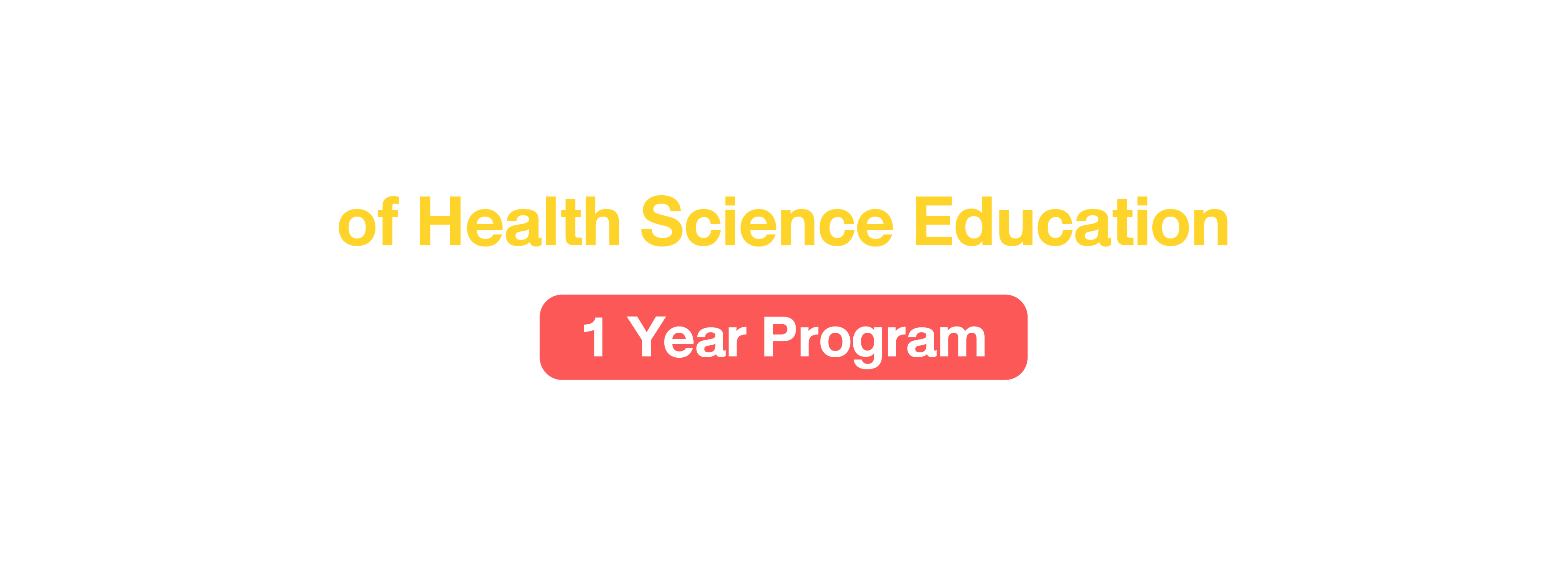
Course descriptions
Semester 1 - 4 months (August to December 2024)
| Module 1 | Principles of Educational Research |
| Module 2 | Psychology of Learning in Health Science Education |
| Module 3 | Assessment and Evaluation of Learning in Health Science Programs |
| Module 4 | Curriculum Development in Health Science Education |
| Module 9 | Faculty Development and Leadership in Health Science Education |
Semester 2 - 4 months (January to May 2025)
| Module 5 | Educational Research Techniques |
| Module 6 | Learning Theories in Health Science Education |
| Module 7 | Assessment and Evaluation of Complex Learning in Health Science Education |
| Module 8 | Curriculum Evaluation in Health Science Education |
Course Details
▶ Module 1
Philosophical foundations of research; basic principles of educational research; defining research problems, research questions; research hypotheses; ethical issues in research; literature review; population and samples; research instrumentation; validity, reliability; writing research proposals; searching and evaluating research articles and presenting health science education research
▶ Module 2
Principles of learning and cognition; behaviorism; cognitive information processing; memory; intelligence; meaningful learning; situated cognition; social learning, experiential learning; ethical conduct of teaching with patients; applying learning theories in the health science education; searching and evaluating research in learning psychology and presenting learning psychology research
▶ Module 3
Basic principles of assessment in health science programs; the quality criteria for the good assessment, formative and summative assessment; validity, reliability; learning outcomes in health science programs; assessment levels in health science programs; assessment methods commonly used in health science programs to assess outcomes at various levels; written examination and item analysis; ethical issues in the assessment; searching and evaluating of literature in the assessment; research in the assessment; standard setting
▶ Module 4
Basic Principles and concepts of curriculum planning and development; approaches to identify curriculum needs; deciding the educational strategy; trends in curriculum design; outcome-based education; competency-based education, entrustable professional activities; educational objectives; learning environment; searching and evaluating research articles about the curriculum development
▶ Module 5
Philosophical foundations of qualitative and quantitative research methods; quantitative research methodologies; experimental research, correlational research, causal-comparative research, survey research; descriptive and inferential statistics; qualitative research methodologies, ethnographic research, historical research, action research, grounded theories; qualitative research techniques, interviews, focus groups, field observations, content analysis; ethics in the analysis of educational data
▶ Module 6
Biological basis of learning and cognition; motivation and self-efficacy; Gagne’s Theory of Instruction; deliberate practice, constructivism; cognitive bias and decision making, multiple intelligences theory, emotional intelligence; moral development and how to teach morality; basic principles of learning media in health science programs; applications of learning theories in teaching health science programs; searching and evaluating literature in the science of learning, presentations of research in learning
▶ Module 7
Principles and processes of advanced assessment, systematic assessment, the development of rubrics for assessment; objective structured clinical examination, portfolio, the efficiency performance assessment, the workplace-based assessment, the assessment of non-technical skills, adaptive tests, grading in the health science program, research in assessment
▶ Module 8
Principles and concepts of curriculum evaluation; Tyler’s model, Stake’s model, CIPP model, Kirkpatrick’s model; the curriculum development process; medical education accreditation standards; searching and evaluating research articles in the curriculum evaluation
▶ Module 9
Basic principles of faculty development and leadership; professionalism and ethics; approaches in developing academic staffs for health science programs; self-assessment and strength finding; the roles of leaders and the change management; negotiations; evaluating of the effectiveness of the faculty development program in health science schools; the organizational structure to support the faculty development in health science schools; academic promotion in health science schools